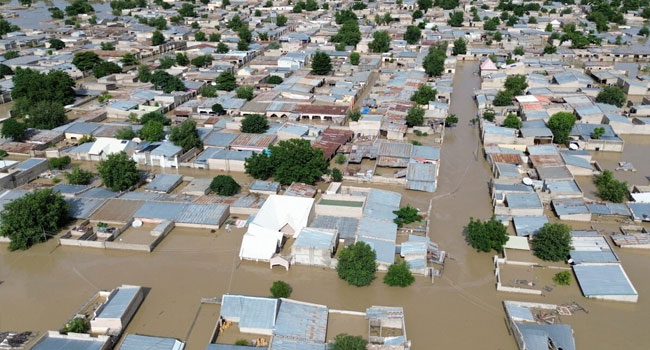The Federal Government, in partnership with United Nations agencies, has launched a pilot Anticipatory Action Simulation Exercise in flood-prone communities of Adamawa State.
The initiative aims to reduce the impact of seasonal flooding and enhance emergency response capacity across Nigeria.
The four-day simulation exercise began on Monday in Kwanta community, located in Numan Local Government Area.
Anticipatory flood exercises are designed to test and strengthen communities’ preparedness and response capabilities ahead of potential flood events.
The simulation includes practicing evacuation procedures, activating early warning systems, and coordinating efforts between emergency services and humanitarian organizations to mitigate disaster impact.
The initiative is jointly organized by the Office of the Vice President, the Food and Agriculture Organization (FAO), the World Food Programme (WFP), and the UN Office for the Coordination of Humanitarian Affairs (OCHA).
The Programme Policy Officer at WFP, Mr. Akeem Ajibola highlighted the critical importance of early preparedness to minimize the impact of anticipated floods.
He noted that the pilot project, coordinated by the Anticipatory Action Taskforce in collaboration with departmental partners, is the first of its kind in the country.
According to Ajibola, the initiative is intended to test early warning systems and protect lives and livelihoods in vulnerable areas. He further disclosed that an anticipatory action framework had been developed in collaboration with the Nigerian government and would be deployed ahead of the 2025 flood season.
The Special Assistant to the President on Humanitarian Affairs and Development Partners, Mrs. Inna Audu described the programme as a strategic shift in the federal government’s disaster risk management approach.
She emphasized that the administration of President Bola Tinubu is prioritizing disaster preparedness, noting that the pilot simulation marks the start of a national push to equip at-risk communities with safety protocols and rescue procedures.
Audu also revealed that the federal government had approved N80 billion for the Federal Ministry of Water Resources and Sanitation to tackle structural issues affecting dams nationwide. In addition, vulnerable populations will receive support through a conditional cash transfer programme to aid relocation and lessen the impacts of flooding.
The Permanent Secretary of the Adamawa State Emergency Management Agency (ADSEMA), Mrs. Ciline Laori described the simulation as a significant step forward in the state’s disaster readiness.
She stressed the importance of community awareness and responsiveness to early warnings, stating that the initiative could be life-saving.
Chairman of Lamurde Local Government Area, Mr. Bulus Daniel, praised the government and development partners for launching the initiative. He expressed confidence that the training and knowledge gained through the exercise would significantly reduce the adverse effects of flooding in the region.
Daniel also appealed to the federal government to complement the simulations with long-term infrastructure interventions, such as desilting the River Benue and constructing buffer dams to tackle recurrent flooding in the area.
The exercise is being implemented in collaboration with the National Emergency Management Agency (NEMA), the Nigerian Meteorological Agency (NiMet), the Nigerian Hydrological Services Agency (NIHSA), and ADSEMA.


